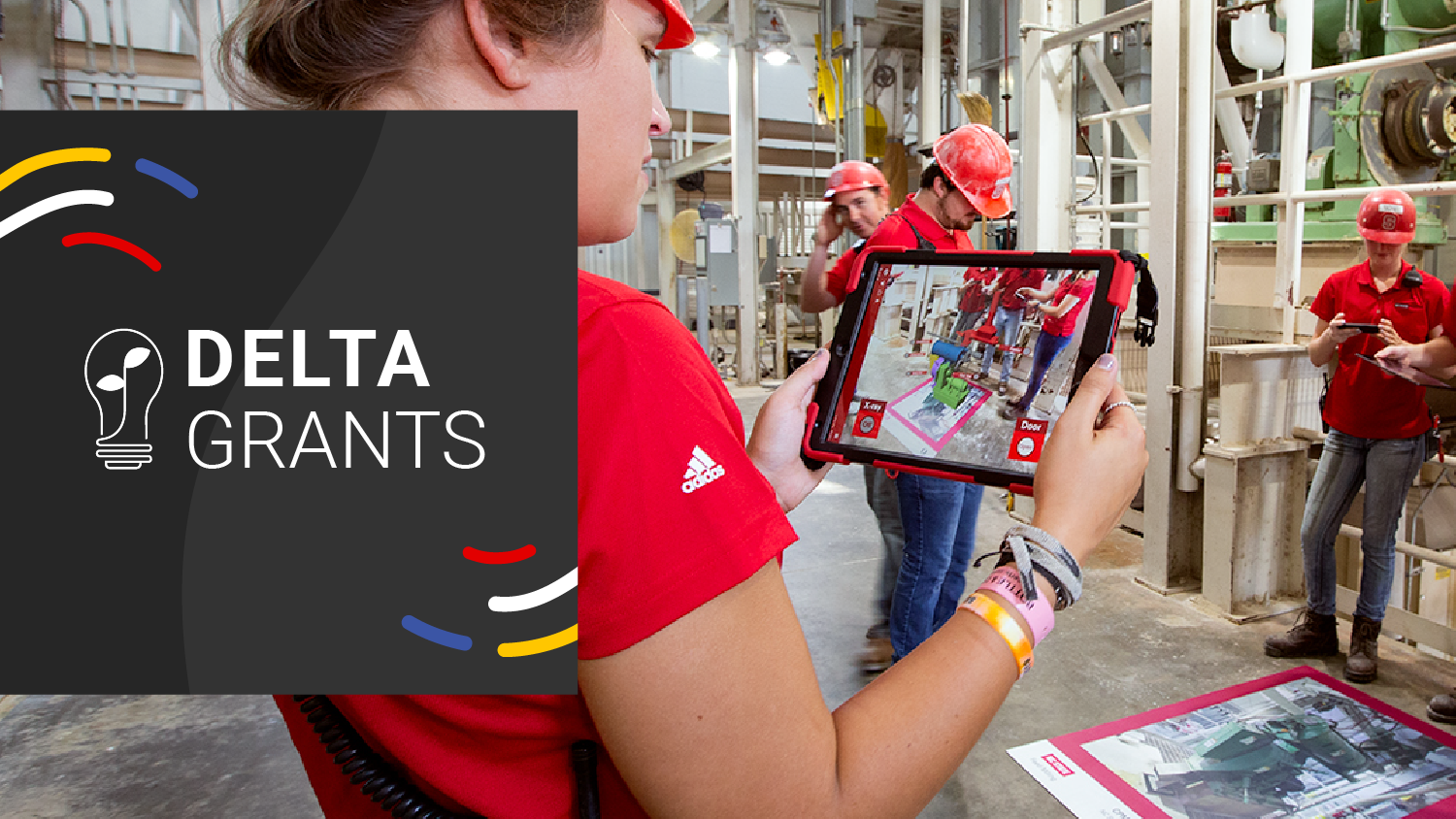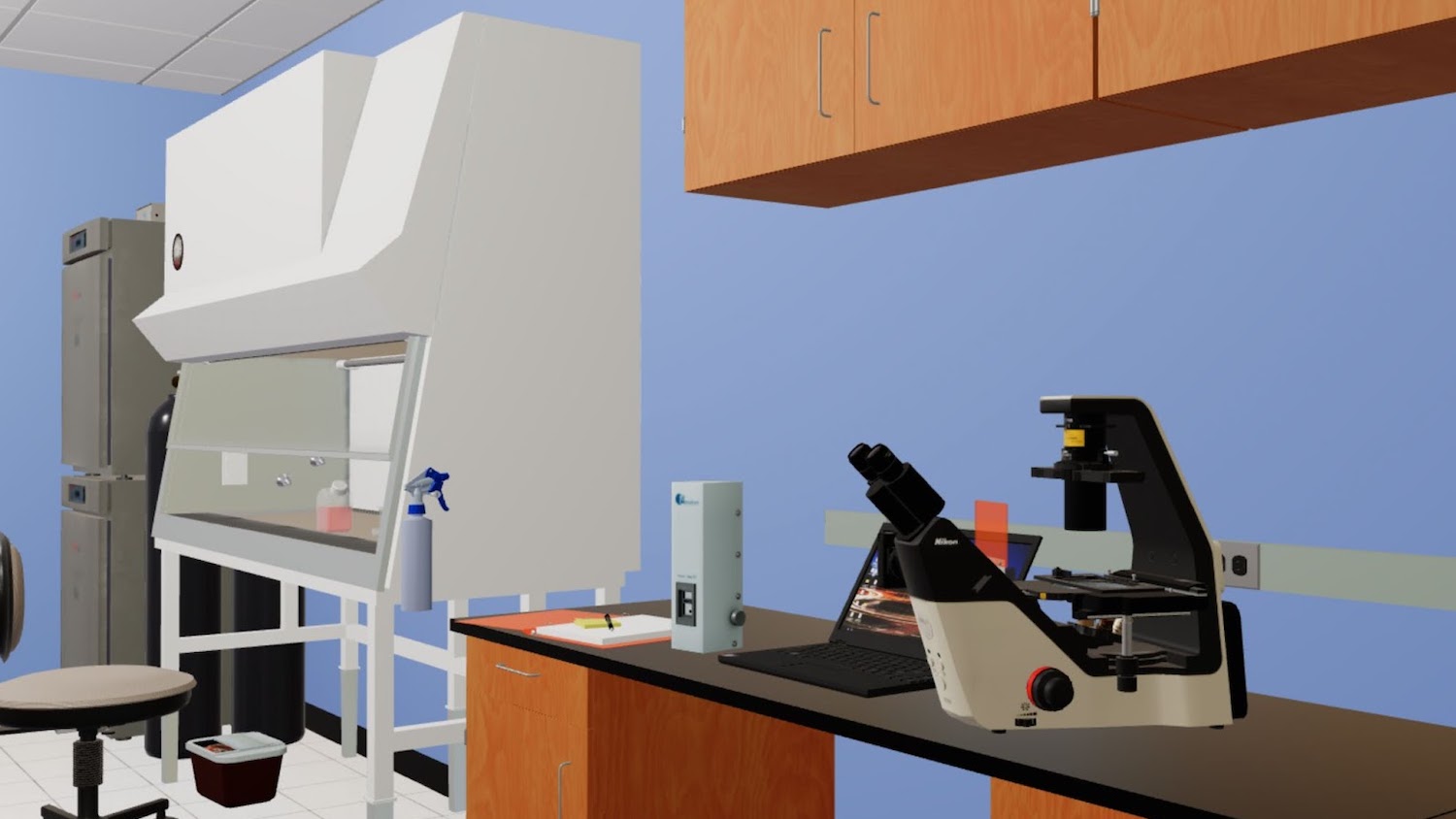Does My Course Content Need a Change?

Have you heard a colleague praising the value of DELTA Grants and wondered, What are DELTA Grants and how can they help me? These grants can assist you with everything from focused goals addressing a specific instructional concern to full course designs, redesigns and assessment of effectiveness.
If you are not sure which grant addresses your particular teaching and learning goals, you can schedule a consultation with the DELTA team. They ask relevant questions and guide you through the process of selecting the right grant for your needs. The group consultation sign-ups begin on March 1, 2023 and the meetings will take place between March 20 and April 21, 2023.
This spring, DELTA is offering the following types of grants: Faculty Fellows, Course Improvement, Critical Path, Course Design and Exploratory Grants. Each grant includes an award stipend that allows you to foster student success by creating/improving course content organization and delivery. The grant types are summarized below with links to recent articles about specific project outcomes.
Course Improvement Grants
Quality Matters (QM) certification offers validation that your class is purposely and thoughtfully designed and presented for optimal student success. If you are a faculty member teaching an online or blended course, this grant prepares you for Quality Matters certification. The award is $6,000 and is accompanied with DELTA staff assistance as part of a cohort of colleagues.
Six classes were first to earn QM certification at NC State in 2018. And, Assistant Director of Course Quality Bethanne Winzeler earned the Quality Matters Making a Difference for Students: Outstanding Impact by an Individual in Higher Education Award in October of 2020. Winzeler is skilled at guiding Course Improvement Grants recipients through the certification process.
Critical Path Grants
If you teach an undergraduate class with a large enrollment that fulfills a graduation requirement of the major or the university, you can use this grant to redesign your course content either partially or entirely. You must have taught the class at least once, and you must be a 3/4 or full-time faculty member. This grant begins in the fall semester and goes through the summer semester with an award of $8,000 plus a DELTA team to assist you. In addition, there is a $2,000 award for a second year of data collection and evaluation.
Director of Environmental First Year Program Megan Lupek successfully redesigned ENV 101: Exploring the Environment in the fall semester of 2022. She had concerns about the scalability of the course, because ENV 101 was expanding to include additional majors across multiple colleges. Lupek wanted to increase the variety of environmental topics explored in class while decreasing the workload for the faculty case leaders involved in the course.
The DELTA team working on this project produced high-quality, evergreen introductory videos that told the background stories of the faculty case leaders in an impactful manner. In addition, one case leader left NC State to join the Environmental Protection Agency (EPA) as a senior social science advisor but still wanted to be a part of the class. So, a question-and-answer style article was written to share his story with students. A DELTA news article published in September of 2022 gives an overview of this particular project.
“I would absolutely recommend pursuing a Critical Path Grant to any colleague who would like to make major improvements to their course,” Lupek said. “Having the support of a team from DELTA as well as funds specifically designated to help you reach your goals for the course sets you up for success.”

Course Design Grants
Substantially revising a course according to quality standards and best practices can be a daunting task. DELTA is here to help you with the Course Design Grants for credit-bearing courses that emphasize innovative use of technology and pedagogy. Any course delivery format (online, hybrid, face-to-face or HyFlex) is eligible for this grant, as long as you are a 3/4 or full time faculty member. You receive an $8,000 award plus a DELTA team to assist you.
When the pandemic hit in 2019, many lab courses faced unprecedented challenges to find new ways to replicate in-person lab experiences. BIT 410/510: Manipulation of Recombinant DNA
taught by Teaching Assistant Professor Melissa Srougi and Teaching Postdoctoral Scholar Jacob Dums was one such course that originally focused on creating a widely distributable virtual reality lab. With input from DELTA staff, they pivoted to create a “lab sandbox” for the BIT 410/510 course. This “lab sandbox” gives faculty the opportunity to configure their lab scenarios to allow students to make decisions, see the results and receive feedback on good and bad choices. A DELTA news article published in February of 2022 highlights the creative deliverables that resulted from this project.
“Working with DELTA allowed us to develop the framework for this project,” Srougi said. “Their expertise was invaluable in translating an abstract idea into a ‘virtual reality.’”

Exploratory Grants
Emerging teaching and learning technologies seem to develop daily. While it is tempting to incorporate them into your course content, you may determine the choices are overwhelming and difficult to master. DELTA experts can help you with product recommendations that provide solutions to your unique challenges in presenting, delivering or engaging students in learning. You must be a 3/4 or full time faculty member teaching a credit-bearing course to apply for the $8,000 award with a DELTA team to assist you.
Professor Jesse Jur, Research Assistant Professor Amanda Mills and Ph.D. student Caitlin Knowles were awarded one of the DELTA Exploratory Grants to create a new graduate-level online course focusing on the reverse engineering of textile products. The resulting TE 589: Design Analysis of Smart Textile Products course was created and offered by the Wilson College of Textiles to students during the spring 2022 semester. This project used a reverse-engineering approach to analyze and evaluate textile projects. A DELTA news article covers this project that sought to make a virtual experience in textile education equivalent to a hands-on experience.
“The DELTA team is a dream to work with! They applied excellent project management skills to keep the progress on track,” Jur said. “Moreover, they make your vision come true through the use of experts they have on staff who are focused on new distance education technologies.”

Faculty Fellows Grants
If you have experience effectively using campus technologies, want to assist colleagues by sharing your knowledge and have been employed at NC State for at least five years, this is the grant for you! The award is $5,000 and activities include leading workshops, writing articles to share best practices and presenting at conferences.
In fact, DELTA Faculty Fellow Sarah Egan Warren recently wrote an article on Chat GPT, which is a chatbot that took academia by storm in late 2022. This bot differs from earlier chat bots because it creates text in a conversational manner that can pass for something a human being wrote. In this article, she offers three strategies to work with this new technology in the classroom.
If you want to read more about recent DELTA Faculty Fellows, check out these DELTA news articles:
Additionally, if you are interested in getting an overview of the Faculty Fellows inspirational work, you can read this DELTA News article from April of 2022. And, if you are already a powerhouse in teaching with technology — share your knowledge with others through the Faculty Fellows program!
If you want to get feedback on your grant ideas, please schedule a group consultation with our DELTA team members. Sign-ups begin on March 1, 2023.
Interested in applying for one of the DELTA Grants? The submission system opens on April 3 at 8 a.m. and closes on May 1 at 5 p.m.


